The Mediterranean Diet.
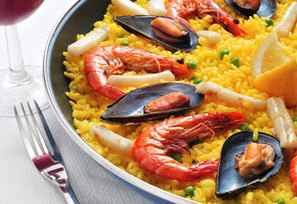
Myths, Facts, and Health Benefits of a Mediterranean Diet
When you think about Mediterranean food, your mind probably goes to pizza and pasta from Italy, or hummus and pita from Greece, but these dishes don’t exactly fit into any healthy dietary plans advertised as “Mediterranean.” The reality is that a true Mediterranean diet consists mainly of fruits and vegetables, seafood, olive oil, hearty grains, and more—foods that help fight against heart disease, certain cancers, diabetes, and cognitive decline. It’s a diet worth chasing; making the switch from pepperoni and cheese to fish and avocados may take some effort, but you could soon be on a path to a healthier and longer life.
What is a “Mediterranean diet”?
Pizza, gyros, falafel, lasagna, rack of lamb, and long loaves of white bread: all these foods have become synonymous with what we call “Mediterranean.” We picture huge, three-hour feasts with multiple courses and endless bottles of wine. But over the past 50 years, Americans and others have altered the idea of Mediterranean fare, ramping up the meat, saturated fat, and calories at the expense of the region’s traditional fruits, vegetables, beans, nuts, seafood, olive oil, small amounts of dairy, and a glass or two of red wine. What was once a healthy and inexpensive way of eating back then is now associated with heavy, unhealthy dishes that contribute to heart disease, obesity, diabetes, and other chronic diseases.
After World War II, a study led by Ancel Keys of the Mayo Foundation examined the diets and health of almost 13,000 middle-aged men in the US, Japan, Italy, Greece (including Crete), the Netherlands, Finland, and Yugoslavia. Remarkably, well-fed American men had higher rates of heart disease than those in countries whose diets had been restricted by the deprivations of war. It was the men of Crete, arguably the poorer people of the study, who enjoyed the best cardiovascular health. This was due to physical labor and their unique food pyramid.
The Mediterranean Diet Pyramid is based on the dietary traditions of Crete, Greece, and southern Italy circa 1960 at a time when the rates of chronic disease among populations there were among the lowest in the world, and adult life expectancy was among the highest, even though medial services were limited.
Aside from eating a diet consisting mainly of fresh and homegrown foods instead of processed goods, other vital elements to the Mediterranean diet are daily exercise, sharing meals with others, and fostering a deep appreciation for the pleasures of eating healthy and delicious foods.
When you think about Mediterranean food, your mind probably goes to pizza and pasta from Italy, or hummus and pita from Greece, but these dishes don’t exactly fit into any healthy dietary plans advertised as “Mediterranean.” The reality is that a true Mediterranean diet consists mainly of fruits and vegetables, seafood, olive oil, hearty grains, and more—foods that help fight against heart disease, certain cancers, diabetes, and cognitive decline. It’s a diet worth chasing; making the switch from pepperoni and cheese to fish and avocados may take some effort, but you could soon be on a path to a healthier and longer life.
What is a “Mediterranean diet”?
Pizza, gyros, falafel, lasagna, rack of lamb, and long loaves of white bread: all these foods have become synonymous with what we call “Mediterranean.” We picture huge, three-hour feasts with multiple courses and endless bottles of wine. But over the past 50 years, Americans and others have altered the idea of Mediterranean fare, ramping up the meat, saturated fat, and calories at the expense of the region’s traditional fruits, vegetables, beans, nuts, seafood, olive oil, small amounts of dairy, and a glass or two of red wine. What was once a healthy and inexpensive way of eating back then is now associated with heavy, unhealthy dishes that contribute to heart disease, obesity, diabetes, and other chronic diseases.
After World War II, a study led by Ancel Keys of the Mayo Foundation examined the diets and health of almost 13,000 middle-aged men in the US, Japan, Italy, Greece (including Crete), the Netherlands, Finland, and Yugoslavia. Remarkably, well-fed American men had higher rates of heart disease than those in countries whose diets had been restricted by the deprivations of war. It was the men of Crete, arguably the poorer people of the study, who enjoyed the best cardiovascular health. This was due to physical labor and their unique food pyramid.
The Mediterranean Diet Pyramid is based on the dietary traditions of Crete, Greece, and southern Italy circa 1960 at a time when the rates of chronic disease among populations there were among the lowest in the world, and adult life expectancy was among the highest, even though medial services were limited.
Aside from eating a diet consisting mainly of fresh and homegrown foods instead of processed goods, other vital elements to the Mediterranean diet are daily exercise, sharing meals with others, and fostering a deep appreciation for the pleasures of eating healthy and delicious foods.
Myths and facts of a Mediterranean diet
Following a Mediterranean diet has many benefits, but there are still a lot of misconceptions on exactly how to take advantage of the lifestyle to lead a healthier, longer life. The following are some myths and facts about the Mediterranean diet.
Myth 1: It costs a lot to eat this way.
Fact: If you're creating meals out of beans or lentils as your main source of protein, and sticking with mostly plants and whole grains, then the Mediterranean diet is less expensive than serving dishes of meat, cheese, and processed foods.
Myth 2: If one glass of wine is good for your heart, than three glasses is three times as healthy.
Fact: Moderate amounts of red wine (one drink a day for women; two for men) certainly has unique health benefits for your heart, but drinking too much has the opposite effect. Anything more than two glasses of wine can actually be bad for your heart.
Myth 3: Eating large bowls of pasta and bread is the Mediterranean way.
Fact: Typically, Mediterraneans don't eat a heaping plate of pasta the way Americans do. Instead, pasta is usually a side dish with about a 1/2-cup to 1-cup serving size. The rest of their plate consists of salads, vegetables, a small portion of meat, and perhaps one slice of bread.
Myth 4: If you follow the traditional Mediterranean diet then you will lose weight.
Fact: Those living on Greek islands don’t enjoy good cardiovascular health just by eating differently; they walk up and down steep hills to tend to their garden and animals, often living off what they can grow themselves. Physical labor plays a large role.
Myth 5: The Mediterranean diet is only about the food.
Fact: The food is a huge part of the diet, yes, but don't overlook the other ways the Mediterraneans life their lives. When they sit down for a meal, they don't sit in front of a television or eat in a rush; they sit down for a relaxed, leisurely meal with others, which may be just as important for your health as what's on your plate.
Health benefits of a Mediterranean diet
A traditional Mediterranean diet consisting of large quantities of fresh fruits and vegetables, nuts, fish and olive oil—coupled with physical activity—reduces the risk of heart disease, certain cancers, diabetes, Parkinson’s and Alzheimer’s diseases. More specifically:
Protecting against type 2 diabetes. A Mediterranean diet is rich in fiber, slowing down digestion and preventing huge swings in blood sugar.
Preventing heart disease and strokes. Refined breads, processed foods, and red meat are discouraged in a Mediterranean diet, and it encourages drinking red wine instead of hard liquor, which have all been linked to heart disease and stroke prevention.
Keeping you agile. The nutrients gained with a Mediterranean diet may reduce a senior’s risk of developing muscle weakness and other signs of frailty by about 70 percent.
Reducing risk of Alzheimer’s. Researchers speculate that the Mediterranean diet may improve cholesterol and blood sugar levels and overall blood vessel health—all factors that may reduce the risk of Alzheimer’s disease or dementia.
Halving the risk of Parkinson’s disease. In a diet containing high levels of antioxidants that prevent cells from undergoing a damaging process called oxidative stress, the risk of Parkinson’s disease is practically cut in half.
Increased longevity. When there is a reduction in developing heart disease or cancer, as in the case when you follow a Mediterranean diet, there is a 20% reduced risk of death at any age.
How to make the change
If you’re feeling daunted by the thought of changing your eating habits to a Mediterranean diet, here are some suggestions to get you started:
Quick start to a Mediterranean diet
There is new, even stronger research backing up the Mediterranean diet as a way to prevent vascular disease. The diet includes generous quantities of olive oil, fruits, vegetables, nuts, and fish; limited portions of red meats or processed meats; and moderate amounts of cheese and wine. So how can you make the switch? Start with small steps, jump-starting your effort with these top five tips:
Following a Mediterranean diet has many benefits, but there are still a lot of misconceptions on exactly how to take advantage of the lifestyle to lead a healthier, longer life. The following are some myths and facts about the Mediterranean diet.
Myth 1: It costs a lot to eat this way.
Fact: If you're creating meals out of beans or lentils as your main source of protein, and sticking with mostly plants and whole grains, then the Mediterranean diet is less expensive than serving dishes of meat, cheese, and processed foods.
Myth 2: If one glass of wine is good for your heart, than three glasses is three times as healthy.
Fact: Moderate amounts of red wine (one drink a day for women; two for men) certainly has unique health benefits for your heart, but drinking too much has the opposite effect. Anything more than two glasses of wine can actually be bad for your heart.
Myth 3: Eating large bowls of pasta and bread is the Mediterranean way.
Fact: Typically, Mediterraneans don't eat a heaping plate of pasta the way Americans do. Instead, pasta is usually a side dish with about a 1/2-cup to 1-cup serving size. The rest of their plate consists of salads, vegetables, a small portion of meat, and perhaps one slice of bread.
Myth 4: If you follow the traditional Mediterranean diet then you will lose weight.
Fact: Those living on Greek islands don’t enjoy good cardiovascular health just by eating differently; they walk up and down steep hills to tend to their garden and animals, often living off what they can grow themselves. Physical labor plays a large role.
Myth 5: The Mediterranean diet is only about the food.
Fact: The food is a huge part of the diet, yes, but don't overlook the other ways the Mediterraneans life their lives. When they sit down for a meal, they don't sit in front of a television or eat in a rush; they sit down for a relaxed, leisurely meal with others, which may be just as important for your health as what's on your plate.
Health benefits of a Mediterranean diet
A traditional Mediterranean diet consisting of large quantities of fresh fruits and vegetables, nuts, fish and olive oil—coupled with physical activity—reduces the risk of heart disease, certain cancers, diabetes, Parkinson’s and Alzheimer’s diseases. More specifically:
Protecting against type 2 diabetes. A Mediterranean diet is rich in fiber, slowing down digestion and preventing huge swings in blood sugar.
Preventing heart disease and strokes. Refined breads, processed foods, and red meat are discouraged in a Mediterranean diet, and it encourages drinking red wine instead of hard liquor, which have all been linked to heart disease and stroke prevention.
Keeping you agile. The nutrients gained with a Mediterranean diet may reduce a senior’s risk of developing muscle weakness and other signs of frailty by about 70 percent.
Reducing risk of Alzheimer’s. Researchers speculate that the Mediterranean diet may improve cholesterol and blood sugar levels and overall blood vessel health—all factors that may reduce the risk of Alzheimer’s disease or dementia.
Halving the risk of Parkinson’s disease. In a diet containing high levels of antioxidants that prevent cells from undergoing a damaging process called oxidative stress, the risk of Parkinson’s disease is practically cut in half.
Increased longevity. When there is a reduction in developing heart disease or cancer, as in the case when you follow a Mediterranean diet, there is a 20% reduced risk of death at any age.
How to make the change
If you’re feeling daunted by the thought of changing your eating habits to a Mediterranean diet, here are some suggestions to get you started:
- Eat lots of vegetables. Try a simple plate of sliced tomatoes drizzled with olive oil and crumbled feta cheese, or load your pizza with peppers and mushrooms instead of sausage and pepperoni. Salads, soups, and crudité platters are also great ways to load up on vegetables.
- Change the way you think about meat. If you eat meat, have smaller amounts and leaner cuts. Put small strips of chicken on your salad, or add diced prosciutto to a whole-wheat pasta dish.
- Always eat breakfast. Fruits, whole grains, and other fiber-rich foods are a great way to start your day, keeping you pleasantly full for hours.
- Eat seafood twice a week. Fish such as tuna, salmon, herring, and sardines are rich in Omega-3 fatty acids, and shellfish like mussels, oysters, and clams have similar benefits for brain and heart health.
- Cook a vegetarian meal one night a week. If it’s helpful, you can jump on the “Meatless Mondays” trend of foregoing meat on the first day of the week, or simply pick a day where you build meals around beans, whole grains, and vegetables. Once you get the hang of it, try two nights a week. Be sure not to load up on cheese, though.
- Use good fats. Extra-virgin olive oil, nuts, sunflower seeds, olives, and avocados are great sources of healthy fats for your daily meals. Some vegetable oils higher in polyunsaturated fats—like sunflower, safflower, soybean, and corn oil—are more heart-healthy than the mostly monounsaturated fats in olive oil.
- Enjoy some dairy products. Try small amounts of cheese, and eat Greek or plain yogurt. You want to make sure to choose low-fat or fat-free dairy products.
- For dessert, eat fresh fruit. Instead of ice cream or cake, opt for strawberries, fresh figs, grapes, or apples.
Quick start to a Mediterranean diet
There is new, even stronger research backing up the Mediterranean diet as a way to prevent vascular disease. The diet includes generous quantities of olive oil, fruits, vegetables, nuts, and fish; limited portions of red meats or processed meats; and moderate amounts of cheese and wine. So how can you make the switch? Start with small steps, jump-starting your effort with these top five tips:
- Sauté food in olive oil, not butter.
- Eat more fruits and vegetables by having them as a snack, or adding them to other recipes.
- Choose whole grains instead of refined breads and pastas.
- Substitute fish for red meat at least twice per week.
- Limit high-fat dairy by switching to skim or 1% milk from 2% or whole milk.
Let's start cooking!!!

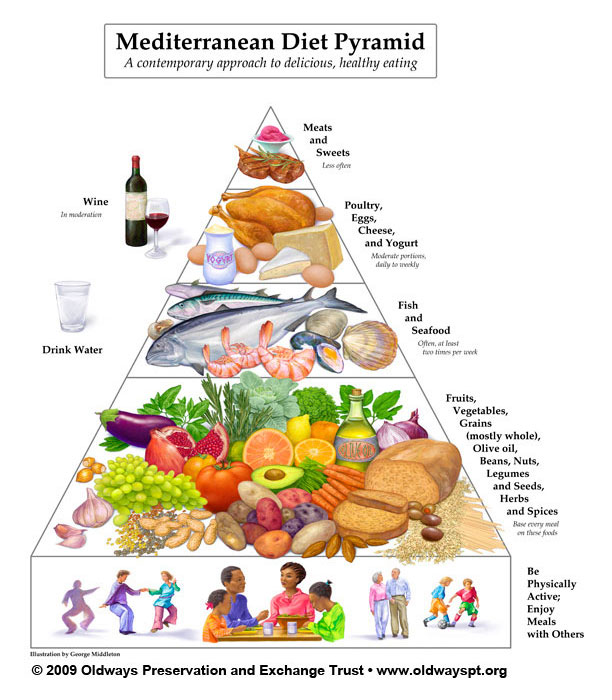
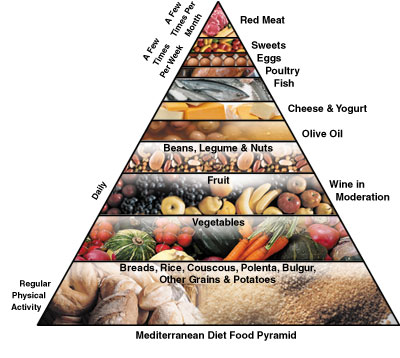
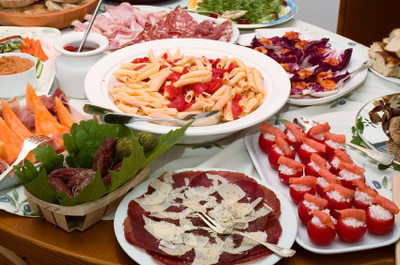

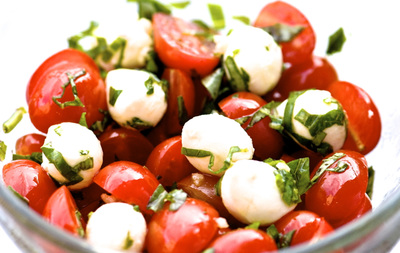


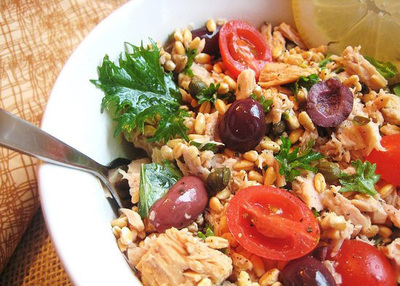
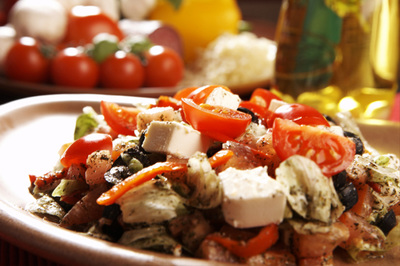
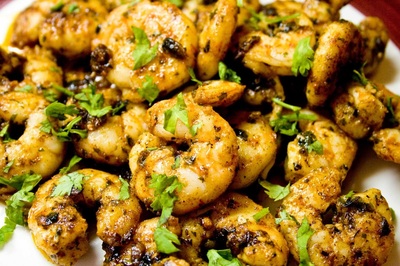

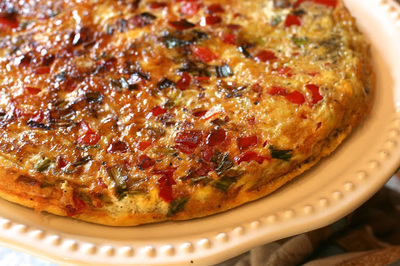

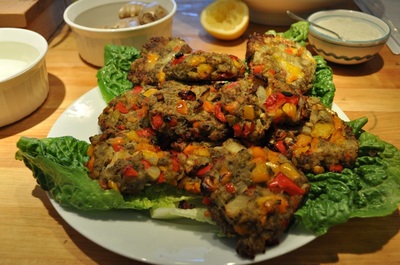
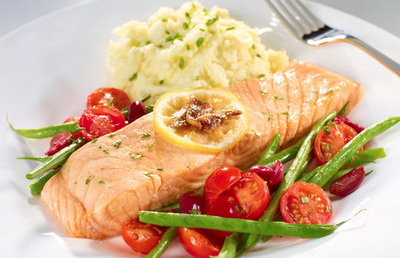

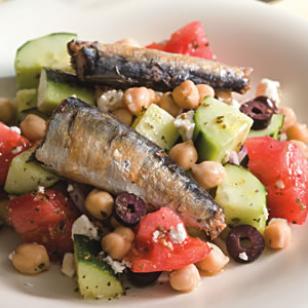
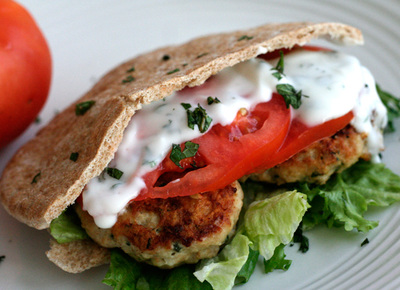
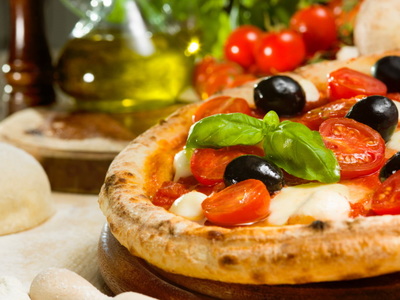


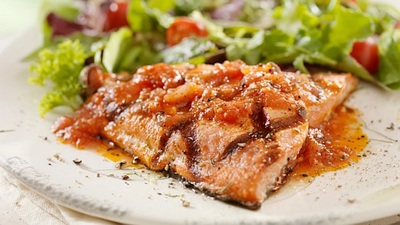
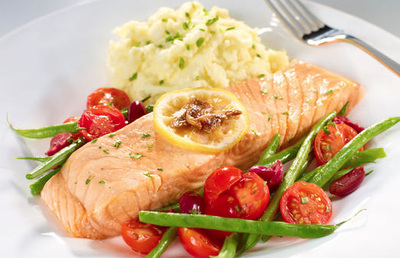

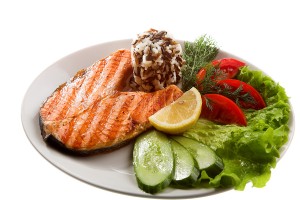
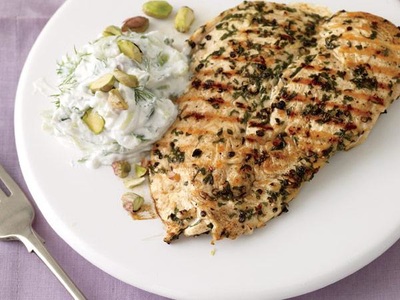
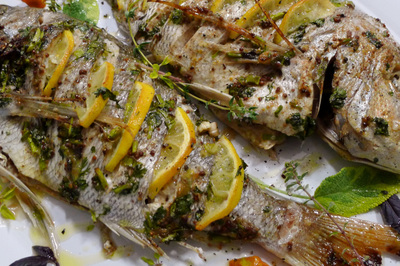




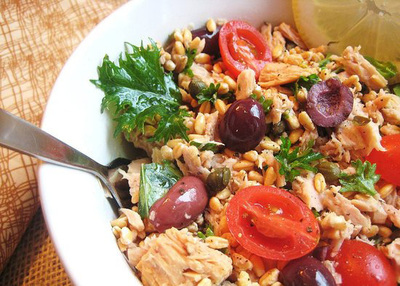
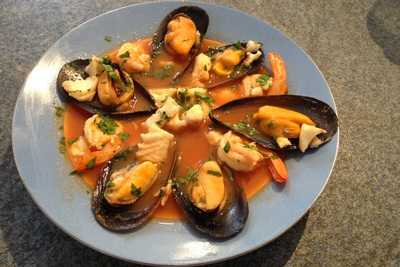
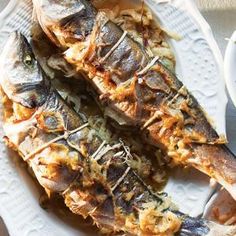
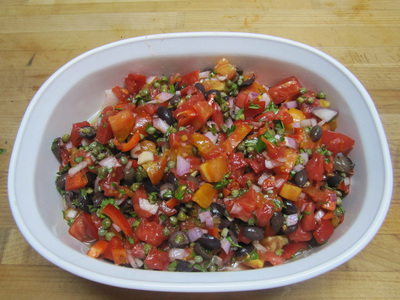
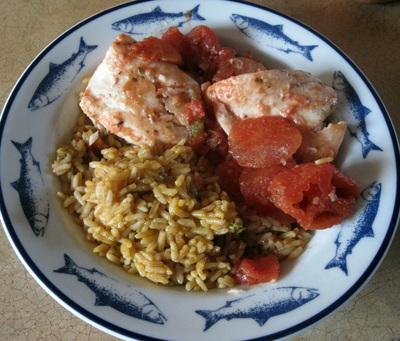





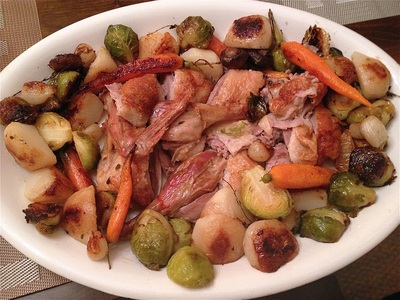

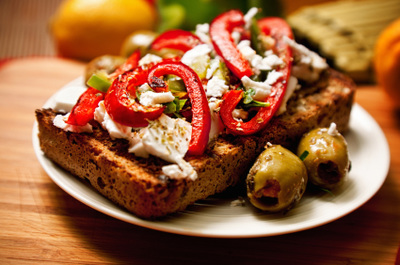
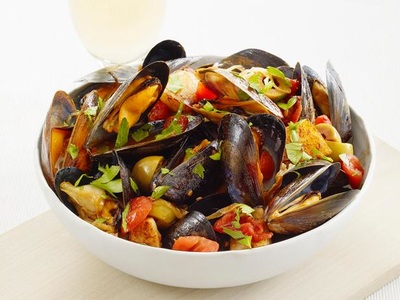
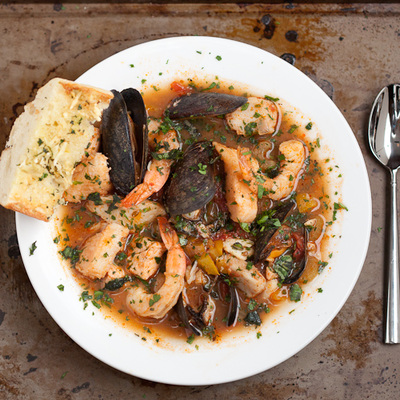

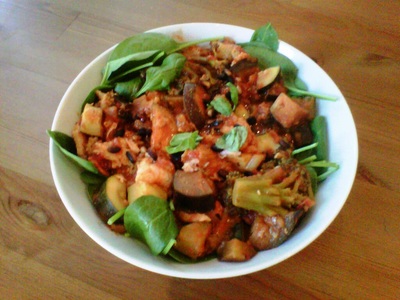
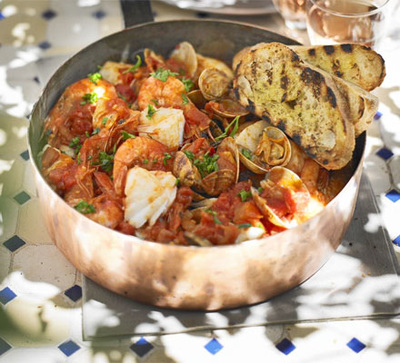

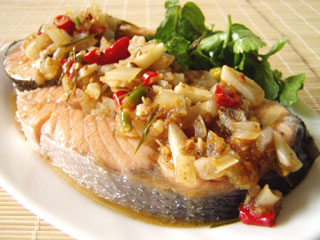
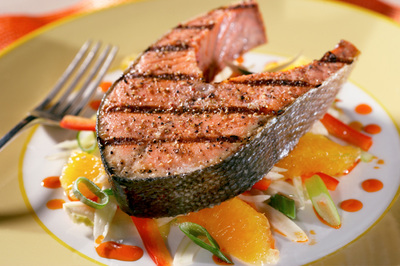

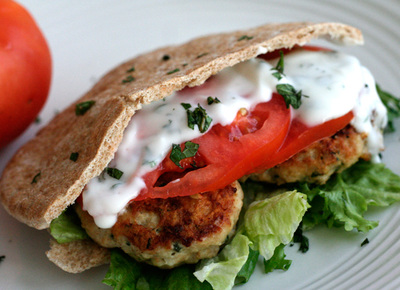
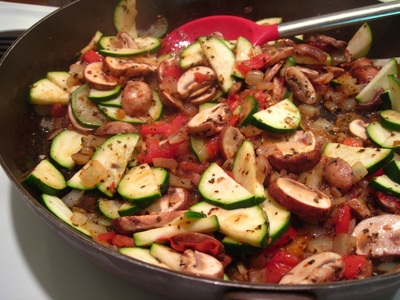

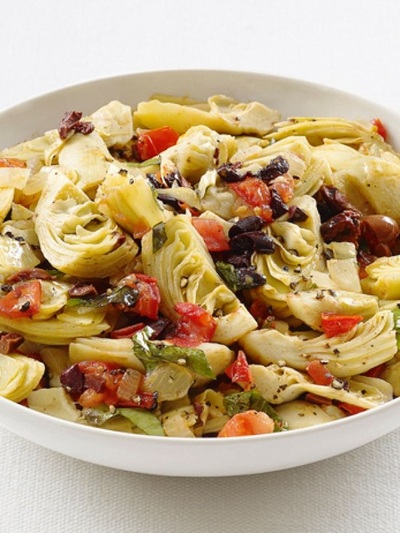
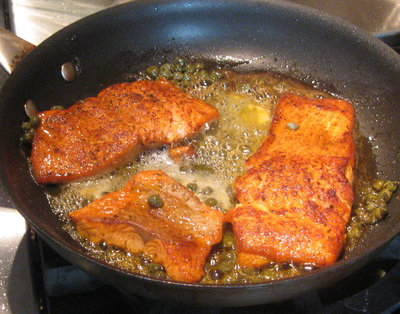

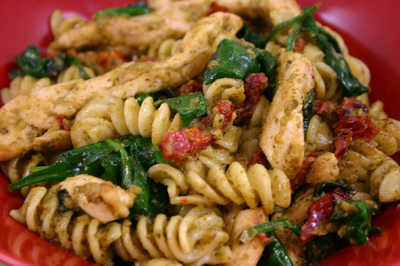
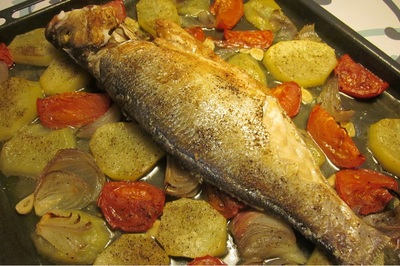
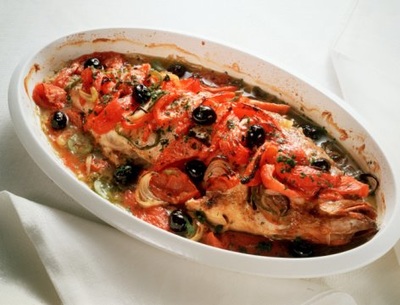



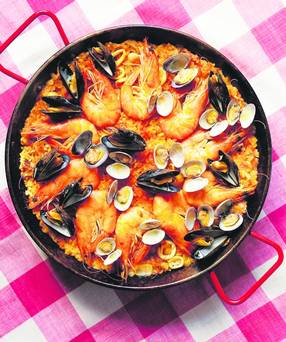
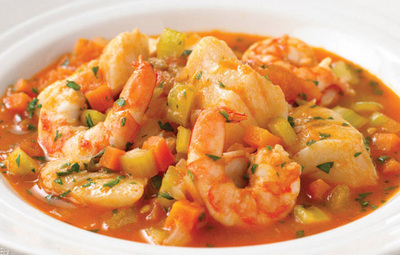
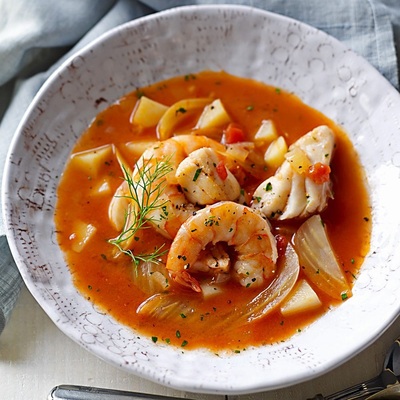
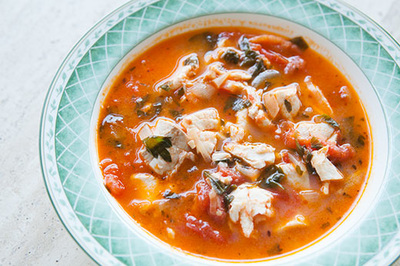
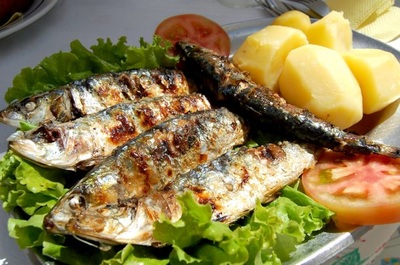
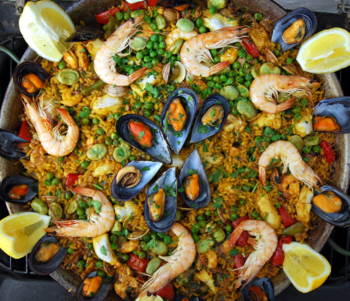
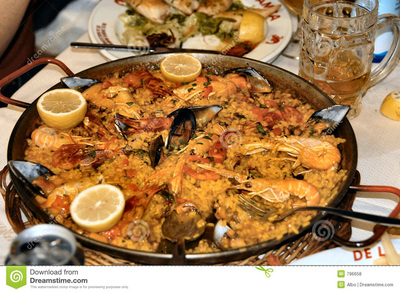
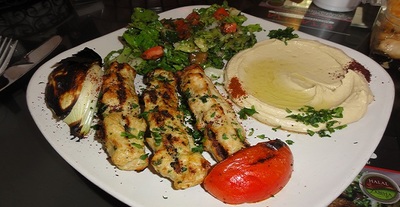
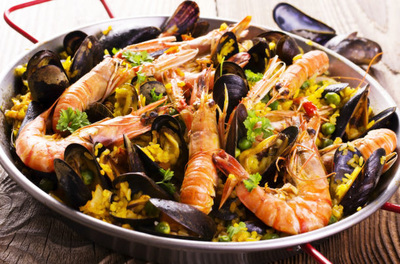
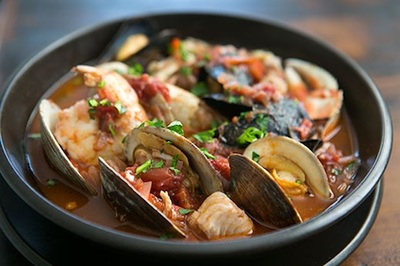




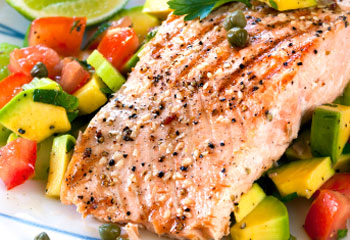
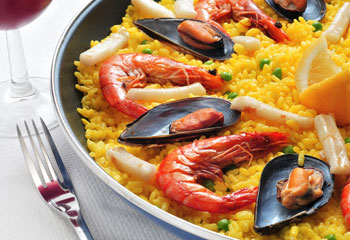
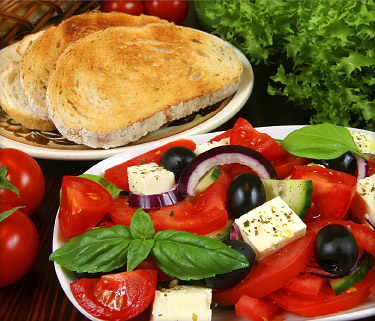
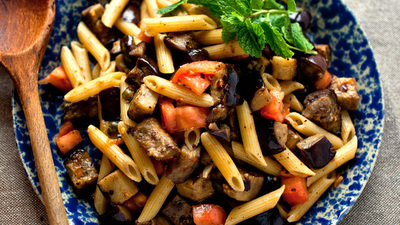
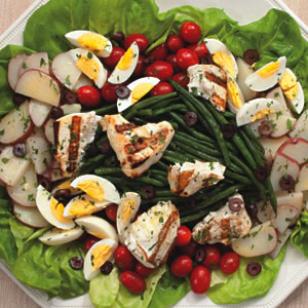

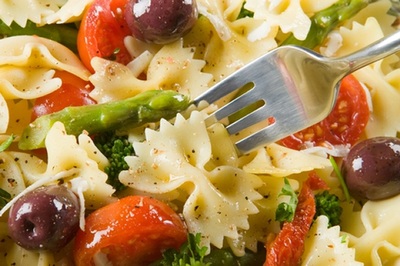

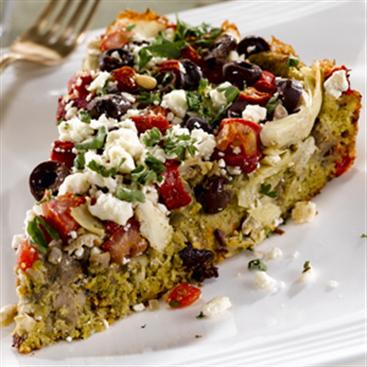

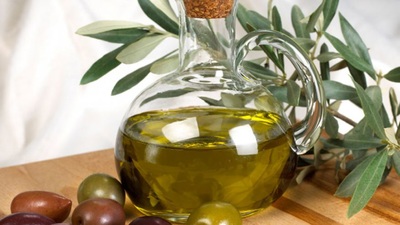

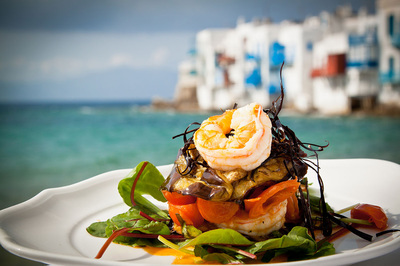

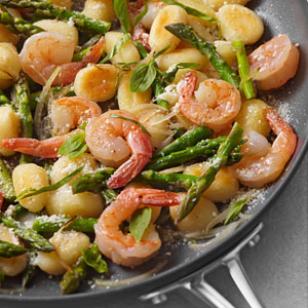
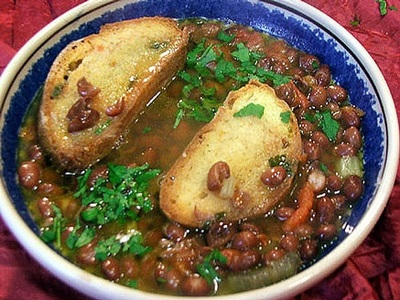
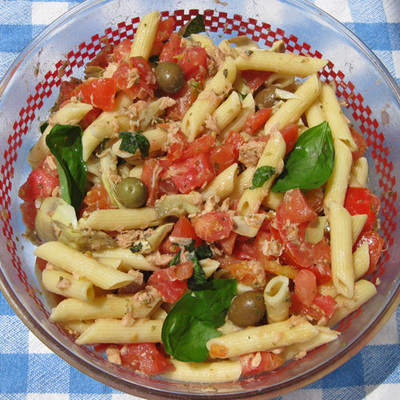
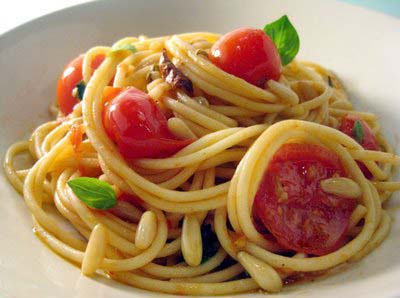


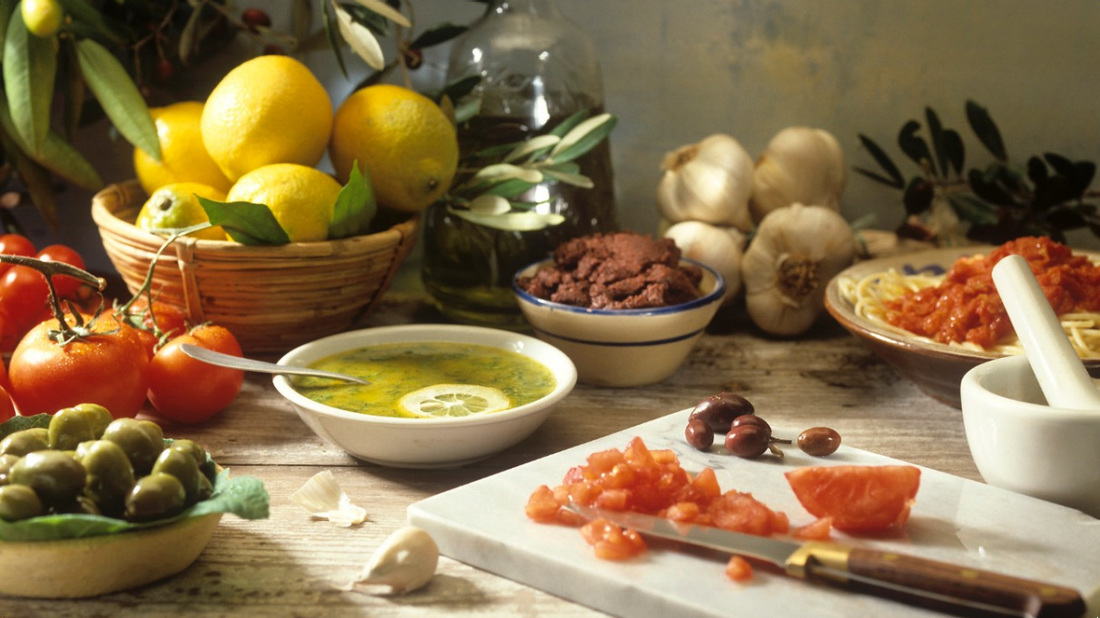
No comments:
Post a Comment
Note: Only a member of this blog may post a comment.